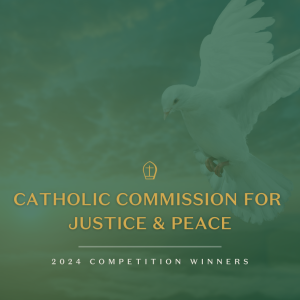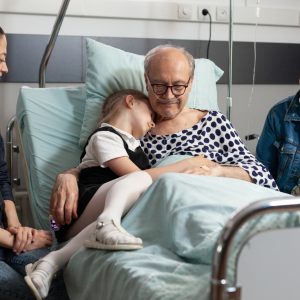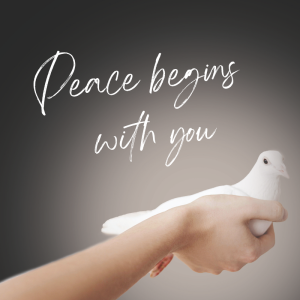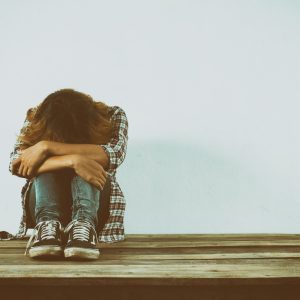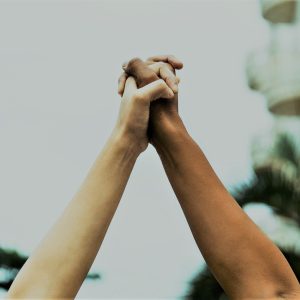The Catholic Commission for
Justice & Peace
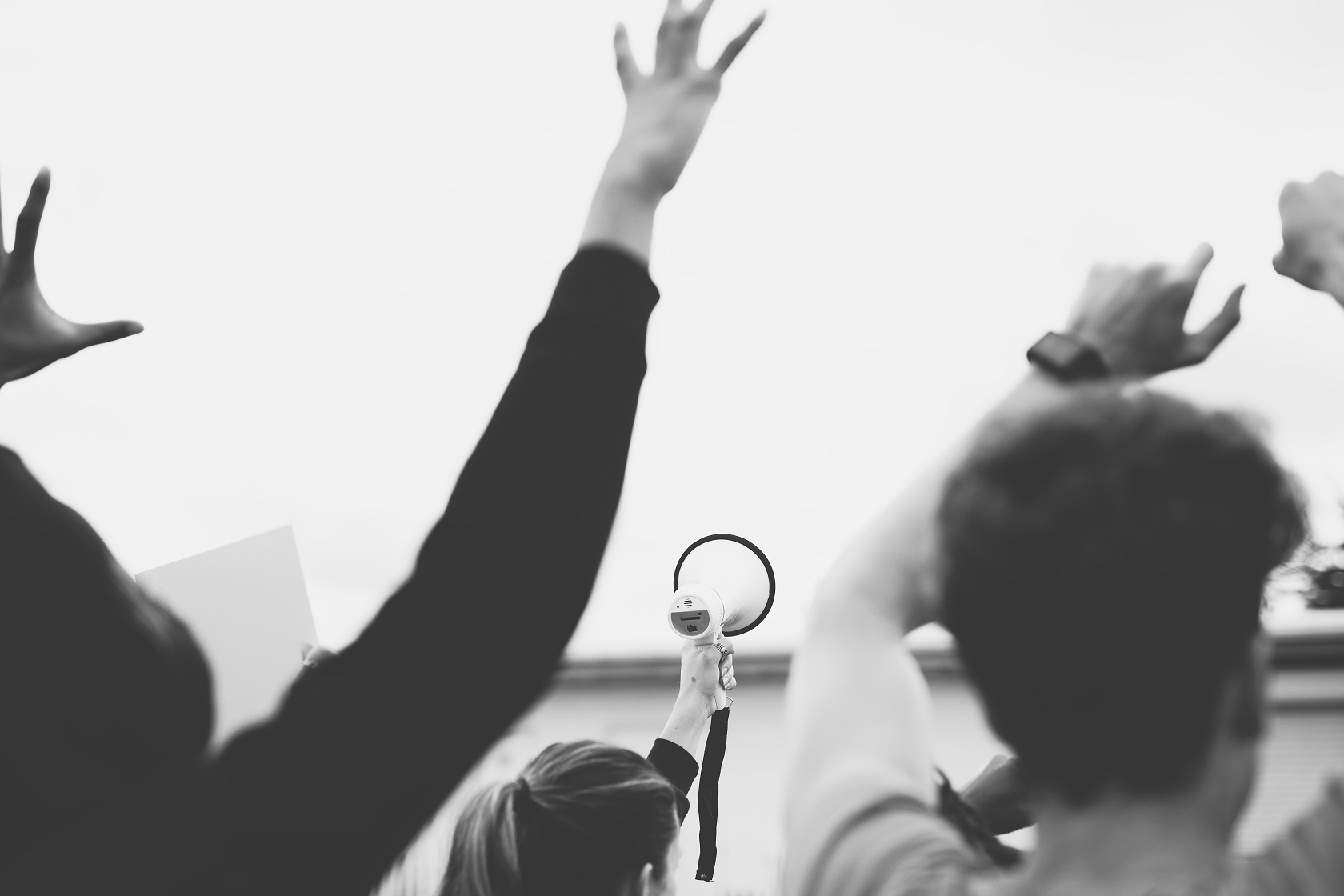
The Catholic Commission for Justice and Peace [CCJP] is a commission of the Bishop of Christchurch to help him promote the knowledge and practice of Catholic social teaching in the diocese.

About the CCJP
The present structure of the Christchurch Catholic Commission of Justice & Peace was set up by Bishop Basil Meeking on his return from time spent in the Vatican where he was involved in the Pontifical Council for Justice and Peace.
Four Pontifical Councils were merged in 2016, including that of Justice and Peace, and on January 1st, 2017, the Dicastery for Promoting Integral Human Development be-came effective. The Vatican COVID-19 Commission was also included into it recently.
The Dicastery promotes the integral development of the person in light of the Gos-pel and in line with the Social Doctrine of the Catholic Church. It is committed to fostering among all people, a sensitivity to peace, to justice and solidarity with the vulnerable, especially migrants and refugees. It pays particular attention to issues such as disarmament, health and mobility, the needy, the ill, the excluded and the safeguarding of Creation.
The Laudato Si’ Action Platform is an initiative of the Dicastery for Promoting Integral Human Development.
“In all her being and actions, the Church is called to promote the Integral development of the human person in the light of the Gospel”.
Apostolic Letter of Pope Francis.
The Christchurch Catholic Commission of Justice and Peace supports the Bishop in his outreach to the Catholic community, educating where it can on Catholic Social Teaching. It promotes the World Day of Peace, the World Day of Migrants & Refugees, the World Day of the Sick, the Season of Lent and Social Justice Week activities involving Catholic schools.
The Commission currently has eight members: Bishop Michael Gielen, Antje Duda, David O’Neill, Sone Nafoi, Fr Sean Mary Britto CSJ and Troy Chapman.
CCJP Articles & Publications
The Catholic Commission for Justice and Peace regularly issue articles and pieces related to current topics.
The Green Pontificates
Psalm 24 tells us that: “The earth is the Lord’s and all that is in it, the world, and those who dwell in it.”
As human beings we are given a special place as God’s children, but that unique place carries a responsibility to the rest of creation in service to God.
Leviticus 25:23 reminds us. “The land shall not be sold into perpetuity, for the land is mine; with me you are but strangers and guests.”
Whatever we have is a gift from God and our faith calls us to care for creation not just for ourselves but for future generations after us.
The stewardship of our planet has always been at the heart of Catholic teaching. Indeed, our most recent Pontificates have placed a heavy emphasis on this from Pope John XXIII in 1961 making a plea against destroying nature to Pope Paul VI in 1971 expressing concern over the “ill-considered exploitation of nature” to Pope John Paul II and Pope Benedict XVI who have been dubbed, The Green Popes.
In his speech for World Day of Peace, January 1st 1990, Pope John Paul II spoke instead on the environment, demonstrating that peace and the environment were related issues. He warned us thus:
“If man is not at peace with God, then earth itself cannot be at peace”
“Therefore the land mourns and all who dwell in it languish and also the beasts of the field and the birds of the air and even the fish of the sea are taken away.” (Hos 4:3.)
Modern society will find no solution to the ecological problem unless it takes a serious look at its lifestyle. (Christifideles Laici, Apostolic Exhortation, 1988. No38).
Humankind’s inability to appreciate the goodness of creation reflects an inability to appreciate the work of God. Our mistreatment of the natural world is not only a failure to respect what God has created but is also a failure to appreciate our own dignity and sacredness. For in abusing the earth we are endangering the life-supporting resources that we and future generations will need. (Lazarus at the Table, Catholics and Social Justice, Chapter 8, p109. Bernard F. Evans).
The bonds that should unite the created world to God have been broken, bonds that recognise that we are connected through the Creator to everything around us. Catholic Social Teaching tells: “There is a need to place ever greater emphasis on the intimate connection between environmental ecology and human ecology”. (John Paul II, Encyclical, Centesimus Annus, 38, AAS83(1991), 841).
Pope Benedict XVI in his first homily as Pope expressed his concern that, “the earth’s treasures no longer serve to build God’s garden for all to live in, but they have been made to serve the powers of exploitation and destruction.”
He was deeply concerned with the environment and humankind placing a heavy emphasis on the common good and solidarity. He maintained the perspective that acting in solidarity with others in the common good regarding the environment would establish a way of being, making us more capable of understanding and living the moral truth of Church teaching.
Both John Paul II and Benedict XVI showed us during their Pontificates that ecological problems are moral problems, that when dominion over the rest of creation becomes domination, humankind becomes abusive towards creation and towards other people. (The Green Popes Benedict XVI & John Paul II on the Environment. Rev.Br Ignatius Schweitzer O.P. & Fr Nicanor Austriaco O.P.)
As climate change worsens for planet Earth, concerns for the common good and the environment have been built upon by Pope Francis in his encyclical, Laudato Si’. Simple lifestyles, good kaitiakitanga of the gifts given to us and living in harmony with creation is asked of us.
The Christchurch Catholic Justice and Peace Commission recently invited you to prepare for the Season of Creation starting in September. One way to do that was to participate in World Environment Day on the 5th of June. This year the focus was on solutions to plastic pollution.
It is estimated that half of all plastic produced is designed for single-use purposes, with approximately 36% being used in packaging. This includes single-use plastic products for food and beverage containers.
The problem is that of the 7 billion tonnes of plastic waste generated globally since 1950, less than 10% has been recycled, with millions of tonnes of plastic lost to the environment or being burned or dumped.
In New Zealand the biggest proportion of debris found in our rivers and on our beaches is single-use plastic, with food wrappers and plastic bags being the biggest culprits. There are many ways you can participate in protecting our planet by reducing your use of single-use plastic.
Barbara Te Miha
Human Dignity and the Consequences of Child Sexual Abuse
The dignity of the human person is the foundation of all Catholic Social Teaching. It teaches us that a just society can become a reality only when it is based on the respect of the transcendent dignity of the human being. The social order and its development must invariably work to the benefit of the human person. 1
Catholic Social Teaching requires us, then, to take the responsibility for our lives, for the well being of our neighbours and for the common good.
Pope John XXIII, spelt this out clearly to us when he wrote, “Those therefore, who claim their own rights, yet altogether forget or neglect to carry out their respective duties, are people who build with one hand and destroy with the other. Since human beings are social by nature, they are meant to live with others and work for one another’s welfare.” 2.
When we look at the rights of children, the Church’s social doctrine constantly points out the need to respect the dignity of children, more, that the rights of children must be legally protected within juridical systems.We are further admonished that it is essential to engage in battle, at national and international levels against the violations of the dignity of boys and girls caused by sexual exploitation, by those caught up in paedophilia and by every kind of violence directed against these most defenceless of human creatures. 3
Here in Aotearoa, New Zealand, Catholics continue to despair over the never ending revelations of abuse emanating from within their institutions. It seems implausible that institutions supported and revered by Catholics, were capable of the callous disregard shown to the most vulnerable of children.
“The measure of every institution is whether it threatens or enhances the life and dignity of every person within that institution. Each and every one of us has the power and means to defend the dignity of other people. It does not and should not rest solely on government or on leaders of the community”. 4
A child sexually assaulted by a member of the clergy or religious, a person the child accepts as representative of God, will consequently feel violated by God. God, the recipient of the child’s prayers, the source of our greatest comfort and peace, then becomes the stuff of nightmares. There is a complete loss of faith. 5
Traumatic experiences during childhood often explain the overall risk for suicidal ideation and actions later in life. Evidence exists that suggests that child sexual abuse increases precocious adolescent sexual activity, drug abuse, depression and personality problems. Victims may suffer flashbacks, nightmares, may self harm and become adults suffering from PTSD - post-traumatic stress disorder. Indeed, adult survivors may still be dealing with the impact of the abuse, affecting their psychological and physical well-being and impacting on relationships causing difficulties in forming intimate relationships. They may find difficulty talking to partners or whānau about the abuse therefore preventing others being able to help or offer support.
The words of Jesus, have been with us for over two millennium, “If anyone causes one of these little ones - those who believe in me - to stumble, it would be better for them to have a large millstone hung around their neck and be drowned in the depths of the sea.” 6
But even these sacred words were not enough to rein in ‘the feral men of Sodom’ from cruelly abusing the children in their care. 7. The physical, mental and spiritual harm done to children in the past continues to haunt their adult lives today.
We have a duty of care to ensure the safety and dignity of our tamariki, in our homes, our schools, our churches and in our institutions. We can start by coming together in solidarity at Safeguarding Workshops within our diocese, working towards making safe and peaceful communities. *
We are all accountable.
Ehara tāku toa i te toa takitahi engari he toa takitini.
My valour is not that of the individual, but that of the multitude. No one can survive alone.
Barbara Te Miha, for ChCh Catholic Commission of Justice & Peace.
Bibliography:
- Compendium of the Social Doctrine of the Church.Chap 3: 132.
- Pope John XXIII, Pacem et Terris, 30-31.
- Compendium of the Social Doctrine of the Church. Chap 5:244, 245.
- Bernard Evans, Lazarus at the Table, Chap 2, Pg 24.
- Bishop Robert Barron, Letter to a Suffering Church, Chap 1, Pg 7.
- Gospel of St Matthew Chap 18:6.
- Bishop Robert Barron, Letter to a Suffering Church Chap 2, Pg 22.
- * WORKSHOPS | Safeguarding (cdocsafeguarding.nz)
Misinformation and Disinformation in the Age of Social Media
"We hear all the time today about disinformation and misinformation being spread online. This article
or that article is labelled as fake news, and the different issues of the day are so heavily politicised
that you can hear two completely different versions of the same event. With social media and the
internet, all these differing news and stories are right at our fingertips for us to access whatever side of the issue it is that we want to hear..."
By Matthew Mischewski
CLICK HERE to read the full article
The fragile and complex concept of Peace – a personal reflection
These thoughts come just 30 min after the news came through that Russia has attacked the Ukraine, explosions have been heard in several cities, the sirens are howling and people flee to underground shelters.
I realise how fragile, complex and interwoven the concept and feeling of peace is for me, my whānau and the world, and different thoughts come to mind, interwoven with the stories of my experiences and that of my family… while I try to take in the situation.
On our video chat that evening my son’s girlfriend is clearly upset, crying, being scared of what will happen next. She has grown up in a united Germany, educated and brought up with the concept and treasure of democracy. She never witnessed anything hostile politically closeby. What just started and seems to be a potential threat, does not make any sense to her. And she can’t really put this into perspective and not fall into apocalyptic views or worst case scenarios… just at a time where she got a glimpse of a peaceful time after the pandemic.
I try to catch up with my mother as well, a post-war child, her parents refugees from the East (internally-displaced). She wasn’t able to speak much at all, glued to the news, “No sorry, I have to watch this, I remember this all from my mama.“ And suddenly the memories from her mother are present again, that became a feature for her childhood: The sound of sirens. When the sirens went on her mother shushed the whole family under the table, to pray the Hail Mary. The same happened during thunderstorms, it reminded her of the air raids. My grandmother escaped Dresden with two young children in the morning before the big bombing, following an inner instinct… Even today my mother does not like the sound of sirens, not even on TV. She watches in disbelief and fear.
My father could still remember the flight from the East, and the time before, where he was not allowed to speak his mother tongue outside the home. Much of the stories that left his parents’ families scattered over the whole of Poland and East and West Germany are buried somewhere in his memory, he does not talk or want to remember… I was too little to remember, he says. He keeps his peace with an everyday routine, that keeps him stable and sane. It helped him to keep his peace through the time of the pandemic.
And here I am, in the safe haven of Aotearoa NZ, encouraging my students to find inner peace and the peace of Christ in their everyday lives. How naive this feels, looking at the global complex picture of peace at the moment, bringing my own experiences to the mixture. Belonging to generation X, I have not experienced “non-peace” first hand, but second hand. I grew up with my grandparents in our home and with their constant stories about the war and flight. Fighting in a war or being on the flight myself from somewhere were regular dreams I had as a child and teenager. When Māori talk about generative trauma, I do understand that historical trauma can be inherited to the next generation. I saw the changing borders in Europe due to wars from afar, but I also witnessed the unbelievable time of the coming down of the Berlin Wall, I was in Year 13 that time in the West. A movement that started as peace prayers in East German churches (as people were not allowed to demonstrate publicly) spreading to the whole of Europe.
My grandparents were and my parents are people of faith, hope therefore was not just a distant concept but an essential practical approach to life, that I have learned from them.
According to the Catechism of the Catholic Church, Christian hope is “the theological virtue by which we desire the kingdom of heaven and eternal life as our happiness, placing our trust in Christ’s promises and relying not on our own strength, but on the help of the grace of the Holy Spirit” (CCC 1817).
And in these complexities of peace shaped by memories, emotions, politics and history, hope seems the only right thing to do, to continue to teach our children and to move forward.
The world yearns for peace but the invasion of Ukraine evokes memories of the Iron Curtain and the brutality that existed behind it during the Cold War. For many years the world has feared a nuclear war – the Cuban Missile Crisis was one example – and now allies of Ukraine have received a veiled threat of nuclear retaliation if assistance is given to this unfortunate country.
Fifteen Million Plastic Bags
I was walking in a government warehouse
Where the daylight never goes
I saw fifteen million plastic bags
Hanging in a thousand rows.
Five million bags were six feet long
Five million bags were five foot five
Five million were stamped with Mickey Mouse
And they came in a smaller size.
Were they for guns or uniforms
Or a dirty kind of party game?
Then I saw each bag had a number
And every bag bore a name.
And five million bags were six feet long
Five million were five foot five
Five million were stamped with Mickey Mouse
And they came in a smaller size.
So I’ve taken my bag from the hanger
And I’ve pulled it over my head
And I’ll wait for the priest to zip it
So the radiation won’t spread.
Now five million bags are six feet long
Five million are five foot five
Five million are stamped with Mickey Mouse
And they come in a smaller size.
(Adrian Mitchell, 1932-2008)
Arms of mass destruction – whether biological, chemical or nuclear – represent a particularly serious threat. Those who possess them have an enormous responsibility before God and all of humanity. (Compendium of the Social Doctrine of the Church, 509, pp 255-256).
Catholic Social Teaching on international order teaches that “The international community is a juridical community founded on the sovereignty of each member state, without bonds of subordination that deny or limit its independence.” (Pius XII, Christmas Radio Message on a Just International Peace, (24 December 1939).
Further, the cultural dimension of the sovereign state takes on particular importance as a source of strength in resisting acts of aggression or forms of domination that have repercussions on a country’s freedom.
In the attack on Ukraine the deaths and shattered lives of fellow human beings is viewed by the aggressor as mere collateral damage in his pursuit of ego, power and greed. “Violence destroys what it claims to defend: the dignity, the life, the freedom of human beings.” (Paul VI, Apostolic Exhortation, Evangelii Nuntiandi, 37: AAS 68 (1976), 29.
The pursuit of peace, however, offers our world new opportunities to grow and extend love for our neighbour, to protect human dignity and the earth we live on. Peace is one of the greatest gifts God offers to humankind. It begins with us, with the inner peace of Christ which surpasses any temporary peace the world can give:
“He rangimārie tāku e waiho nei ki a koutou, tēnei tāku rangimārie te hoatu nei e ahau ki a koutou. E kore e rite ki tā te ao hoatu tāku hoatu ki a koutou”. Hoani 14: 27.
"My peace I leave you, my peace I give you. My peace is not the peace the world gives you” John 14:27.
Barbara Te Miha & Antje Duda
Palliative Care and Euthanasia (NEW)
One of the topics that is less talked about these days than it has been in the past few years -
but still of no less importance - is the debate regarding euthanasia and palliative care for the
terminally ill. Since the introduction of the End of Life Choice Act in 2019, New Zealand has
become a country in which euthanasia and assisted suicide is now legal and even
encouraged.
The Catechism of the Catholic Church says the following about euthanasia:
Those whose lives are diminished or weakened deserve special respect. Sick or
handicapped persons should be helped to lead lives as normal as possible.
Whatever its motives and means, direct euthanasia consists in putting an end to the
lives of handicapped, sick, or dying persons. It is morally unacceptable.
As does the Compendium of the Social Doctrine of the Church:
The first right presented in this list is the right to life, from conception to its natural
end, which is the condition for the exercise of all other rights and, in particular,
implies the illicitness of every form of procured abortion and of euthanasia.
As can be seen, as a Church we have always been against direct euthanasia. But the focus of this particular article is not on
euthanasia itself, but rather on a different and better approach we should encourage towards
those suffering with a terminal illness - that of improved medical palliative care to alleviate
the suffering that those with a terminal illness may be experiencing. This is what the
Catechism is talking about in the paragraph quoted above, when it says that “Sick or
handicapped persons should be helped to lead lives as normal as possible”.
It is unfortunate that due to the End of Life Choice Act passing into New Zealand law, there
is now less impetus to explore the topic of palliative care further, and develop better ways
that this can be provided and implemented for those suffering New Zealanders who don’t
want to commit assisted suicide. This unfortunately means that a Catholic approach to a
pain free end of life for those suffering may be more difficult to provide for all those who
should have access to it.
As Catholics, we should be asking for further research to be done into this area. Our faith
calls us to embrace life as a gift from God, to protect and uphold the sanctity of human life
from conception to natural death. Palliative care aligns with these fundamental principles, by
providing a way to alleviate suffering while respecting the dignity of each individual.
This approach is a compassionate and loving response to our loved ones who may be
suffering, and allows them the best chance to have a pain free and natural death.
The call for increased research into palliative care methods is something that is very much
needed in Aotearoa today. Some practical ways of doing this are to engage with healthcare
professionals and doctors when you get the chance and request their support. There are
several organisations which offer palliative care, two such ones to potentially support are
Hospice New Zealand and Palliative Care Nurses New Zealand
You can also talk to your local MPs and bring up the issue of palliative care as a cause which needs more funding.
As Catholics, let's do our best to be that voice in our country and witness to our faith as well.
Showing hope and love in a world that often prioritises expediency over human dignity.
Matthew Mischewski
Faith in Action - Upholding Catholic Values with the Living Wage (NEW)
The increase in the cost of living is a very popular topic of discussion, particularly in
recent years with a rapidly changing economy. Unfortunately, it seems that many
people are struggling to make ends meet, despite working hard to support
themselves and their families.
The Catholic Church believes that work is a duty which we are to carry out, but in
doing so you are honoring the gifts which God has given you. We are all created in
the image of God and blessed with different talents and abilities which we use in all
our efforts and interactions, including during our working lives. We believe “work
honors the Creator’s gifts and the talents received from him…work can be a means of
sanctification and a way of animating earthly realities with the Spirit of Christ.”
Therefore work is not only important for our earthly lives, but also our spiritual lives.
In honoring God’s gifts in our work, it is only right and fair that workers should be
paid. This pay is not simply to compensate workers for their efforts so that they can
barely get by week to week, but it should also allow them to live comfortably, save
for a house, the future and participate fully in their community. A just wage is the
legitimate fruit of work, remuneration for work should guarantee workers the
opportunity to provide a dignified livelihood for themself and their family on the
material, social, cultural and spiritual level. The Church thereby believes that all
workers should be paid the living wage, which from September 1st 2023 is $26.00 per
hour.
The living wage is defined as the income necessary to provide workers and their
families with the basic necessities of life. This will enable workers to live with dignity
and to participate as active citizens in society. It is based on a family of two adults
and two children, with one person working full-time and one person working part-time. This aligns with Catholic Social Teaching: a family’s income must be “…a wage
sufficient to maintain a family and allow it to live decently. Such a wage must also
allow for savings that will permit the acquisition of property….”
As such the Catholic Diocese of Christchurch pays their staff the living wage.
The living wage is calculated each year by the New Zealand Family Centre Social
Policy Unit and is the minimum income needed to pay expenses such as food,
transport, housing, recreation and culture, and childhood education. Most of the
data used for each of these categories is sourced from the Household Economic
Survey run by Statistics New Zealand every year.
The ultimate test of a just wage is whether it provides the income for a decent life. A
just wage should be determined in light of the common good – our Church in the
modern world. Although it may be difficult, particularly as business owners in the
current economic climate, as Catholics who strive to follow our beliefs, it is our
challenge to always uphold and support the living wage.
“Not paying a just wage, not providing work, focusing exclusively on the balance
books, on financial statements, only looking at making personal profit. That goes
against God!”
-Pope Francis, 1 May 2013
Troy Chapman
